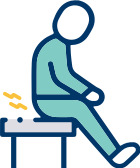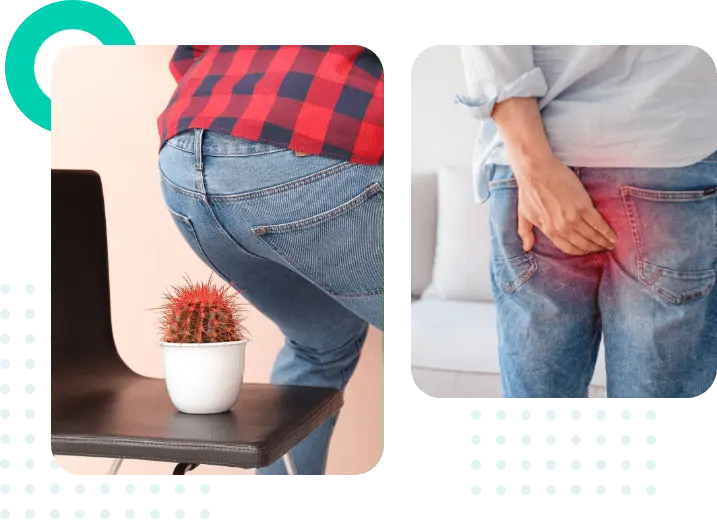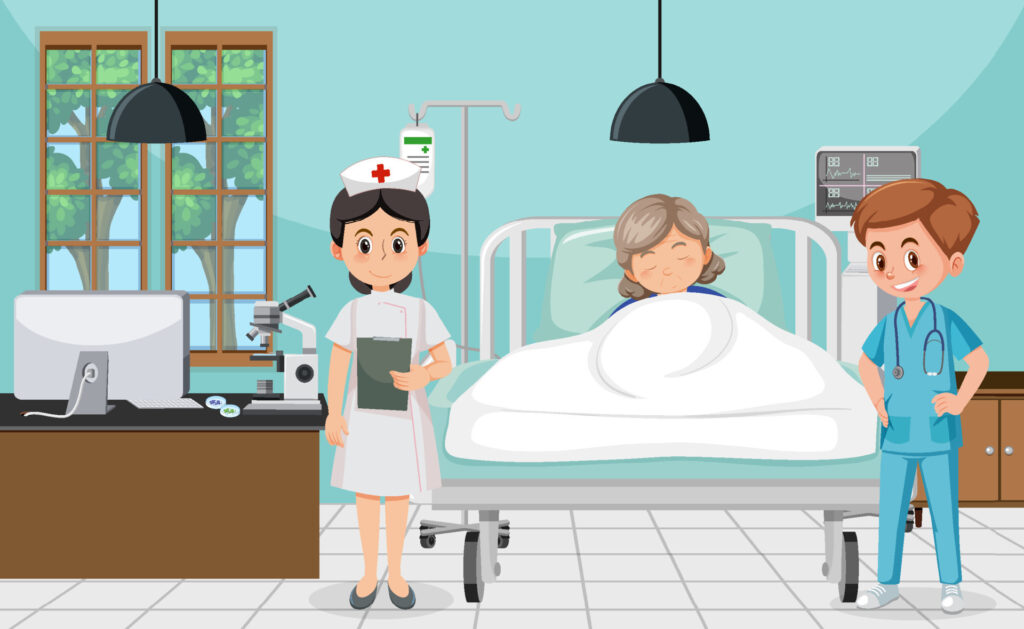Made Stress-Free Reliable Hassle-Free Convenient Pocket friendly
Request a call back
The surgery you need is
just a click away


21K +
Consultations

1180
Surgeries

100+
Partner Hospitals

10000+
Hassle-free Consultation

5000+
Smooth surgeries

500+
Expert Doctors

100+
Trusted hospitals

Laser Piles Surgery In Mumbai
Piles, also known as hemorrhoids are caused by a swollen vein in the rectum and anal canal. The patient can go home the same day after having a daycare surgery for piles, often known as laser piles treatment. You can get in touch with the top proctologists at Aapkacare Health in Mumbai to prevent the condition from worsening.
- Laser Treatment
- Complete Insurance Support
- Minimal Pain
- Free Pick Up & Drop
- 30 Minute Procedure
About Piles
Doctors & Hospitals
Why aapkacare
FAQ
What are Piles?
Hemorrhoids, often known as piles, are veins in the anal canal that are swollen and inflamed, resulting in pain and bleeding. Internal hemorrhoids, appear inside the anal canal. Nearly three out of every four adults get piles occasionally. One could experience harmful piles-induced effects including dry skin, rashes, or severe grades of piles that may require surgery.

Identify the Signs of Piles
Signs of internal hemorrhage
include
Signs of external hemorrhage
include
Understand the Causes of Piles
There is a wide range of factors that cause piles, both internal and external. Here are some of them. The most common causes of piles include

Chronic constipation that involves a struggle to pass stool putting extra strain on the blood vessel walls which can lead to piles.

Too much time spent sitting down, especially while using the restroom, might result in hemorrhoids.

It could be genetic as piles is a condition that certain people are prone to based on their family genes.

Consuming foods deficient in fibre may make piles more likely.

Lifting heavy objects repeatedly can result in the development of piles

Anal sex can result in new hemorrhoids or make existing ones worse.
Types of Piles (Hemorrhoids)
Deep within the rectum, bulging veins known as internal hemorrhoids form. Because there are no pain nerves in the rectum, they cannot be seen or felt and produce few visible symptoms due to their location. Internal hemorrhoids usually cause no harm and disappear on their own. Larger ones, however, can result in symptoms including bleeding, itching, or a burning sensation. Another bump could be felt close to the anus and bleeding is possible during bowel movements.
These are internal hemorrhoids that have pushed through the anus or protruded from it. Depending on how far the protrusion extends, prolapsed hemorrhoids can be categorised as grade I grade, II grade, III and grade IV.
These develop on the skin around the anus and are discernible, palpable lumps. They exhibit symptoms that are comparable to internal hemorrhoids with the exception that internal hemorrhoids are found inside the rectum. External hemorrhoids, on the other hand, develop outside the body; therefore, their symptoms, such as pain, are more severe. For some people, these symptoms might interfere with daily activities like sitting, exercising or going to the bathroom.
An internal or external hemorrhage that has been thrombosed means that a blood clot known as a thrombus has formed. The most severe symptoms of a thrombosed hemorrhoid, a hazardous complication of untreated hemorrhoid, include excruciating pain, burning, itching, redness, and swelling. Though not life-threatening, thrombosed hemorrhoids need to be treated right away by a doctor. A surgical operation called a thrombectomy, in which the blood clot inside the hemorrhoid is removed and emptied is the primary treatment for it.


Our Experts Explain
Benefits of Laser Treatment
|
EXPERIENCE
|
OPEN SURGERY
|
LASER SURGERY
|
|---|---|---|
|
CUT
|
LONG
|
MINIMAL
|
|
PAIN
|
PAINFUL
|
MILD
|
|
STITCHES
|
MULTIPLE
|
MINIMAL
|
|
HOSPITAL STAY
|
LONG
|
ONE DAY DISCHARGE
|
|
RECOVERY
|
SLOW
|
FAST
|
Hemorrhoidectomy surgery: This procedure is used to treat piles of the most serious grades. The hemorrhoid is removed after the proctologist makes a few small incisions around the heaps of tissue and ties up the enlarged veins to stop bleeding.
Stapler Piles Surgery: The arterial blood vessels found within the hemorrhoids are cut off with a stapler instrument in this type of surgical excision of piles, obstructing further blood flow to the vessels. As a result, piles gradually diminish and eventually disappear. This sort of piles surgery ensures that patients heal quickly and causes little discomfort.
Laser Piles Surgery: One of the most recent, cutting-edge, and efficient surgical treatments for hemorrhoids is laser piles surgery. A laser beam is focused on the anal tissues during a piles laser treatment so the hemorrhoids are burned and reduced in size. There is virtually little bleeding and pain during piles surgery with laser technology.
The proctology division of Aapkacare Health offers surgical therapy and diagnosis for piles. Aapkacare Health, a trustworthy healthcare partner, has partnered with numerous multi and super-specialty hospitals providing cutting-edge machinery and technology.
Patients may be released from the hospital a day or two after having surgery for piles or hemorrhoids, which is typically performed in a day surgery center. One to two weeks after piles surgery, you can resume your normal activities, but it’s advised that you avoid strenuous activities and avoid heavy lifting at that time. To prevent pain or bleeding while passing stools until the area around the anal sphincter heals, you may be advised to take stool softeners. Here are some recovery tips:
- Keep your stools soft so they pass easily since this will help you avoid piles the best.
- Consume fibre-rich meals. Eat more whole grains, fruits, and veggies. By doing this, the stool will soften and thicken, avoiding straining that could lead to piles. To avoid issues with gas, progressively incorporate more fibre into your diet.
- Drink lots of water. To keep stools soft, drink six to eight glasses of water daily in addition to other liquids and avoid alcohol.
- Go for fibre supplements. The average person’s diet falls short of the 20 to 30 grams of fibre per day that are advised. Studies have demonstrated that over-the-counter fibre supplements like psyllium (Metamucil) or methylcellulose (Citrucel) reduce piles symptoms all around and reduce bleeding.
- Take it easy. The lower rectum’s veins are under more strain when you are trying to pass a stool while squeezing and holding your breath.
- Exercise. Staying active can help prevent constipation and ease the pressure on veins that might develop from prolonged standing or sitting. Exercise can also aid in weight loss, which may aid in the treatment of your piles.
- Limit your sitting time. Too much time spent sitting, especially on the toilet, might put more strain on the anal veins.
- Get the right medication. Your doctor might recommend over-the-counter lotions, ointments, and suppositories if the pain from your piles is only modest. Witch hazel, hydrocortisone, and lidocaine are some of the components in these medications that temporarily ease pain and irritation. Avoid using over-the-counter steroid cream for longer than a week unless your doctor specifically instructs you to do so.
What possible complications can you expect following piles surgery?
Patients heal well from the piles operation, and the surgery is rather common. However, a few uncommon issues might be as follows:
- Infection at the location of surgery.
- Discomfortable stool-passing
- Affected organs, nerves, or nearby vessels may sustain damage.
- Faecal incontinence as a result of sphincter muscle weakness.
- Bleeding without control.
- Recurrence
Piles can cause a few unusual complications –
- Piles can lead to anemia, which is a condition in which your body lacks enough healthy red blood cells to transport oxygen to your cells. Internal hemorrhoids may become strangulated(blood supply to the area gets cut), which can be extremely painful.
- A clot may occasionally develop in the hemorrhoid (thrombosed hemorrhoid). It is not harmful, although it can be very uncomfortable and sometimes needs to be lanced and drained.
Your doctor might suggest one of the various minimally invasive piles procedures available if you have persistent bleeding or uncomfortable hemorrhoids. These procedures can normally be carried out with an anaesthetic in your hospital emergency room or another outpatient facility.
Rubber band ligation: To stop the circulation of internal hemorrhoids, the doctor wraps one or two thin rubber bands around the base of the growth. Within a week, hemorrhoid dries out and peels off. An annoying side effect of hemorrhoid banding is bleeding, which may start two to four days after the piles treatment but is rarely severe. Sometimes, more severe issues can appear.
Injection (sclerotherapy): Your doctor shrinks the hemorrhoid tissue by injecting a chemical solution into it. Although the injection is not painful, it might not be as effective as rubber band ligation.
Coagulation (infrared, laser): The use of heat, infrared light, or lasers is a coagulation technique. They induce internal hemorrhoids that are tiny and bleeding to stiffen and shrink.
The grade of the piles is the criteria for providing a particular surgery. The price rises if the condition is exceedingly severe and cannot be treated with minimally invasive piles surgery. Following is an explanation of the various severity grades of piles to help you better understand how much the cost depends on this factor:
Grade I: In grade I the symptoms or causes include only bleeding, and no prolapse.
Grade II: Grade II causes include prolapse but spontaneous reduction.
Grade III: Prolapsed but has to be pushed inside.
Grade IV: In grade IV it remains prolapsed.

About our Doctors & Hospitals
all your queries.

Our Aim is to keep you healthy
Receive Expert Care
We find the finest doctors & facilities for your procedure

Zero Paperwork
We take care of all the paperwork so that you can relax

Hassle-Free Insurance
We work directly with your insurance provider for fast approvals

Get Home Sooner
Our advanced procedures help you recover faster and more safely

Are you worried about the cost of Piles treatment?
Aapkacare Health finds you the most affordable prices for your Piles in Mumbai. Even so, the exact cost is hard to pinpoint since your Piles surgery cost depends on various factors such as age, medical history, type of surgery, etc. Call us today to get a personalised cost breakdown.

Your journey with Aapka Care Health


You should consider having piles surgery if no over-the-counter drugs, non-surgical treatments, or home cures are providing relief from your discomfort caused by piles.
Because they tend to repeat, piles can become more problematic if they are not promptly handled. The best and most effective treatment for piles is laser surgery.
Surgery can be used to treat piles. Following the procedure, all you need to do is follow your doctor’s advice to keep the Piles at bay.
Untreated piles should not be ignored since they may result in:
- Incontinence
- Excessive bleeding per rectum that results in anaemia
- The anal area is infected
- Hemorrhoids with strangulations
Because laser piles surgery is minimally invasive and causes incisions, sutures, scars, or pain, it is the safest method. Additionally, at Aapkacare Health, we only employ surgical instruments and equipment that have been approved by the Administration. Laser Piles surgery is therefore safe, for any other additional information you can contact our customer care.
The list of anorectal disorders that result from poor digestive health includes piles. Age and gender have no impact on the growth of piles. Children who frequently have diarrhoea and constipation are more likely to develop piles.
Consume adequate fiber to prevent constipation.
Keep away heavy objects from being lifted.
Contact your doctor immediately if you notice any of the symptoms listed below.
After being discharged, discomfort or pain.
Fever
Incontinence
Severe pain
Piles become more likely as you become older. This is due to the possibility of the tissues supporting the veins in your rectum and anal canal becoming weak and stretched. Due to the baby’s weight placing pressure on the anal region, this may also occur when you are pregnant.
Physical activity and how you keep your body active have a direct impact on hemorrhoids. Constant exercise maintains the colon healthy and functioning normally. You should be aware of which forms of exercise are beneficial for you and which are not, given that. Any activity that strains or presses on your abdomen should be avoided. Avoid weightlifting. Do not spend a lot of time sitting still. Exercises that don’t cause a flare-up of the piles’ tissues include swimming, yoga, jogging, and walking.
- Practice sitz bath daily for 10-15 minutes
- Consume foods high in fibre, such as fruits, grains, and vegetables, in your regular diet.
- Stay hydrated by drinking adequate water. Aim to consume 8 to 10 glasses of water each day.
- Use topical remedies. Dab witch hazel or over-the-counter hemorrhoid lotion on the affected region.
*Beans, a legume, lentils, peas, and nuts
*Barley, brown rice, buckwheat, millet, and oatmeal are examples of whole grains.
*Broccoli, cauliflower, Brussels sprouts, radishes, and cabbage are examples of cruciferous vegetables.
*Root vegetables include potatoes, carrots, beets, and sweet potatoes.
*Foods high in fibre include watermelons, apples, raspberries, pears, and cucumbers.
Some patients are unable to correctly diagnose their condition in the beginning. If the first stage of the piles is not treated, they quickly progress, and the patient soon starts to exhibit severe grade 4 piles symptoms. Laser piles surgery is the best treatment for grade 4 piles.
Eggs are among the healthiest foods you can consume in large quantities because they are heavy in protein and cholesterol, provided you only eat one or two. From gastritis to irritable bowel syndrome, eggs are beneficial for disorders of the digestive tract. Even in the absence of dietary fibre, they do not immediately worsen hemorrhoids.
The benefits of drinking lukewarm water in large quantities include improved digestion and softer stools. Coconut water, spinach, carrot, and watercress juices are some other healthy beverages. If you have piles, avoid alcohol.
Patients heal well from the piles operation, and the surgery is rather common. However, a few uncommon issues might be as follows:
- Infection at the location of surgery.
- Uncomfortable stool-passing
- Affected organs, nerves, or nearby vessels may sustain damage.
- Faecal incontinence as a result of sphincter muscle weakness.
- Bleeding without control.
- Recurrence
No, Aapkacare Health is only a platform provider. It does not own any hospital. Aapkacare Health works in partnership with other hospitals. It uses doctors and surgeons from the hospitals or independent qualified surgeons to perform the surgeries, leveraging the medical infrastructure of the partnered hospitals.



